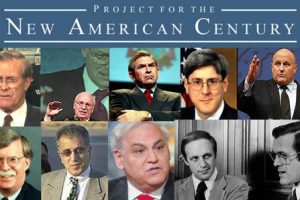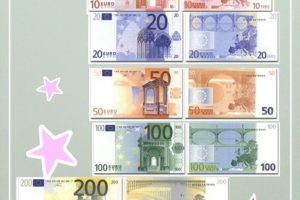After World War II, the most important aspect of the United Nations' security policy, led by the United States and Britain, was "to not make Germany and Japan a threatening country again." In Japan, the defeated nation, the United Nations of victorious nations was translated as KOKUREN, obscuring the distinction between victorious nations and defeated nations. However, the "enemy state clause" that refers to Japan and Germany in Article 53 of the UN Charter has not been deleted even today, 77 years after the adoption of the Charter. Both of the two defeated nations have achieved miraculous postwar reconstruction. After fierce economic friction with the United States, Japan declined due to the economic stagnation of 30 years triggered by the bursting of the financial bubble in 1991, and became a "subordinate of the American Shogunate" who is now too obedient. On the other hand, Germany was made a potential enemy by the United States at the time of the unification of East and West Germany in 1990. Although rarely seen, the United States and Britain now treat Germany, the leader of the European Union (EU), as an enemy, along with China and Russia. Therefore, let us discuss a part of the contrasting relationship between Germany and Japan with the United States as seen from the ongoing crisis in Ukraine.
■ A rally of neo-conservatives who also interacted with Japan's Abe network
Following the collapse of the Soviet Union, the US Department of Defense has begun to lead the formulation of security and defense policies with the rise of neoconservatives who advocate the sole hegemony of the United States. They come up with a strategy of ignoring the UN Security Council, which cannot proceed without the unanimous consent of the five permanent members. It was nothing but an American unilateralist act that eliminates China and Russia, which are constantly forced to confront and vote against it, and in some cases avoid France, which sticks to "strategic autonomy" from the US-North Atlantic Treaty Organization (NATO).
In February 1992, the year after the Soviet Union disappeared in December 1991, the Pentagon created a secret document. Defense policy guidelines have been set out as part of the US Home Security Strategy for the Post-East-West Cold War. Neocons gathered to create the document.
The chief executive is then Secretary of Defense Richard Cheney. Chaney was the Deputy Presidential Counsel under Richard Nixon's administration and became the White House Chief of Staff at the youngest age of 34 in the Gerald Ford administration after Nixon resigned due to Watergate. He became Secretary of Defense under the Bush administration and Vice President under the W. Bush child administration, building the heyday of neoconservatives. During the vice-presidential era of the 2000s, when the war on terrorism peaked, it was openly whispered as "the shadow president Cheney ."
It was Paul Wolfowitz, then Under Secretary of Defense, who played a central role. I. Lewis Libby, a student of Wolfowitz's political sciences at Yale University, was also in the post of Assistant Secretary of Defense at the time and participated in the development of the guidelines.
 The story is derailed, but it is worth noting that Libby, a genuine neoconservative, is said to have been in close contact with Shinzo Abe and his Japanese connections. In particular, between 2007, when the first Abe administration collapsed, and 2012, when the second administration was inaugurated, he held a key position in the government as a commentator on the Neocon-based think tank Project for the New American Century (PNAC) = photo =. It seems that he mediated the exchange between the following people who were there and the Abe network.
The story is derailed, but it is worth noting that Libby, a genuine neoconservative, is said to have been in close contact with Shinzo Abe and his Japanese connections. In particular, between 2007, when the first Abe administration collapsed, and 2012, when the second administration was inaugurated, he held a key position in the government as a commentator on the Neocon-based think tank Project for the New American Century (PNAC) = photo =. It seems that he mediated the exchange between the following people who were there and the Abe network. Donald Rumsfeld, Paul Wolfowitz, Jeb Bush, Richard Perle, Dick Cheney, William John Bennett, Zalmay Khalilzad, Ellen Borg, John Bolton
Now, the gist of the guideline is: (1) The order of the world must be maintained by the United States, and if necessary, the United States will act alone. (2) Preemption against the manufacture and use of weapons of mass destruction or the nations that may do so. Do not hesitate to attack ③ Strictly deal with the threats of oppressed nations, especially Iran, Iraq, and North Korea ④ Develop missile defense is urgently needed. In short, it was a declaration that "in the post-Cold War world, the rise of America's rival superpowers will not be allowed." It later became the basis of a new strategic idea commonly known as the Bush Doctrine, which appeared in response to the September 11, 2001 terrorist attacks on the United States.
■ The United States clashes with Germany over the Iraq War and leaves the UN frame
 Iran, which was made an oppressive nation by this guideline, is paraphrased as a rogue nation instead of the Bush child administration, and is the target of a preemptive attack. It was Germany and France that opposed the Iraq War and clashed violently with the United States. Germany and France, which lead the EU, have agreed with Iraq to settle oil sales in the euro, the single European currency, which was just launched on January 1, 2002.
Iran, which was made an oppressive nation by this guideline, is paraphrased as a rogue nation instead of the Bush child administration, and is the target of a preemptive attack. It was Germany and France that opposed the Iraq War and clashed violently with the United States. Germany and France, which lead the EU, have agreed with Iraq to settle oil sales in the euro, the single European currency, which was just launched on January 1, 2002. Washington was reportedly angry at the neoconservatives, saying "Germany and France will never forgive", with hostilities and denunciations threatening the status of the US dollar's sole key currency. The EU has finally emerged as a hostile force for the Bush US neoconservatives, and in 2003 the US buried a crude oil euro settlement agreement with Iraq's Saddam Hussein administration. The Iraq War, which organized a coalition of the willing volunteers that jumped out of the framework of the United Nations such as the United States and Britain and embarked on military intervention with a preemptive attack, marks the beginning of a cold war with the EU, which has Germany as its ally.
The 1992 Defense Policy Guidelines compiled by Paul Wolfowitz set the European Union (EU), which was established by the entry into force of the Maastricht Treaty in 1993, as a potential enemy country along with China. The EU is nothing but Germany, which has re-emerged after the war as a regional power that drives Europe. The existence of the Social Democratic Party (SPD), which has been a leader in German politics since the West German era, was a hump above the eyes of the US conservative rulers. The SPD leader became the German Chancellor for the first time in 16 years at the end of 2021, and the frustration of the United States increased.
■ Ukraine speaks for hatred against Germany
This was evidenced by the speech by President Zelensky of Ukraine on March 17, 2022, during the crisis in Ukraine.
The president, who made a video speech in the Bundestag, accused Germany of helping to create a "new wall" between Ukraine and Europe. He said, "We have deepened our economic ties with Russia and made Putin earn war expenses, and we have swayed Ukraine's request to join NATO and have given top priority to our economic ties with Russia until the last minute."
He added, "Instead of the Berlin Wall, there is a wall in Europe that separates freedom and inconvenience. It gets higher every time a bomb falls and every time a decision to help Ukraine is forgotten." In a commanding tone, he approached the new SPD-led administration of Ukraine, saying, "Break the wall."
This was also a spokesman for Washington, which has sought hatred for Germany. It was explicitly shown that the Biden administration had a feeling of hostility towards Berlin as much as possible.
The actual situation of the relationship between Germany and the United States and the EU and the United States /the United Kingdom has been exposed over the recent situation in Ukraine. (Continue)
